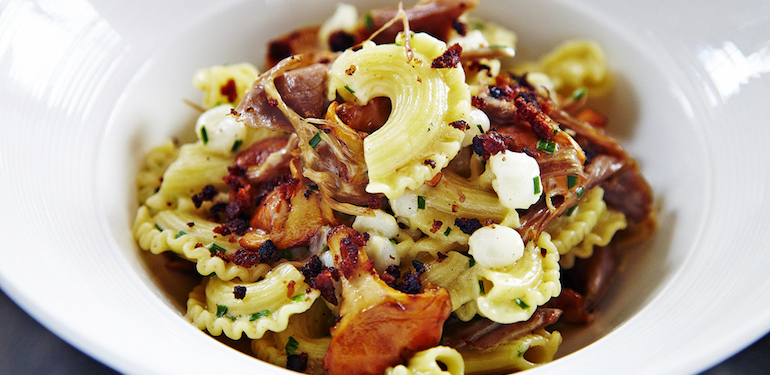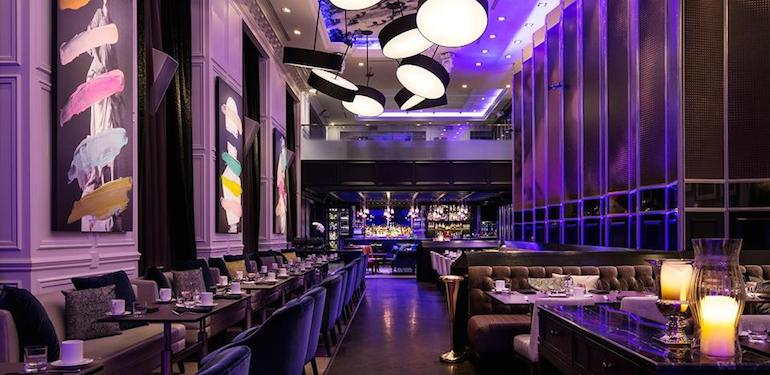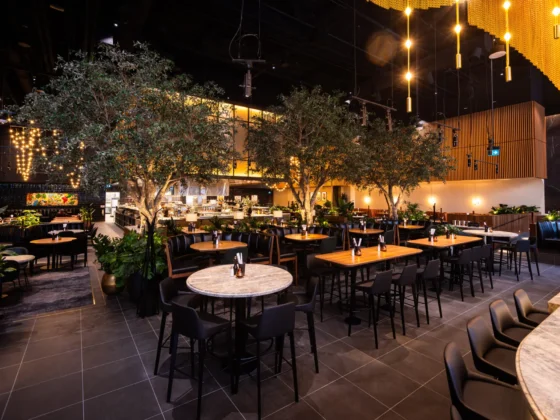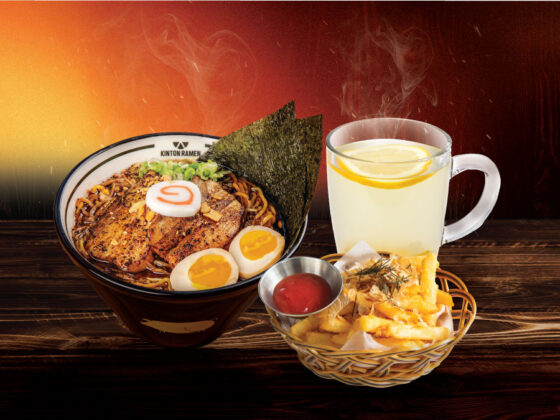How does a restaurant survive in a town where every week a ton of restaurants open while the same amount appear to close? Toronto has seen a major shift in the restaurant culture over the last decade and, looking at the industry today, it’s actually frightening. From the outside, the danger of opening a restaurant in this city likely goes unnoticed but, in today’s climate, it does make industry insiders question why restaurateurs keep creating more and more competition for each other. Ultimately, competition has always been known to be healthy, but with great restaurants closing weekly while others are secretly trying to sell, what does it take to survive in this crazy state of constant turnover?
Looking at the evolution of Toronto’s restaurant scene over the last 10 years, I remember when there were only a handful of outstanding offerings – everything else was Italian pizza/pasta. While these still exist in abundance, today our restaurant selections are much more creative, and the talented chefs in this city never cease to amaze their guests. But why does every chef need to own a restaurant (before the age of 30)? Has nobody noticed that the industry is over-saturated and they could potentially be closed within the year?
So what does it take to make a restaurant successful in this city?
ADVERTISEMENT |
Is it food? Service? Location? Vibe? Is it personally knowing the entire city? Being in the restaurant industry (in every capacity) for most of my life, I thought I had the answer. But in the last couple of years, I have watched fantastic restaurants run by incredibly talented restaurateurs and chefs shut their doors because no matter how good they were, they just couldn’t stay alive. Yet, restaurants that serve average food and offer mediocre service are open and often full because they’re considered “cool”, and tiny 20-seat restaurants have line-ups around the corner. With such fantastic offerings in our city, is this really necessary?
Janet Zuccarini, the leading female restaurateur in our city who owns Trattoria Nervosa, Gusto 101, Pai, and is opening a second east end location for Gusto101, insists that it’s a numbers game as well as offering guests a reason to choose her restaurant over another. “Many restaurateurs wait until the end of the year for their accountant to tell them they have lost money. Never mistake a busy restaurant with a successful restaurant. Revenue doesn’t mean a thing when your costs are higher than they should be.”
Zuccarini is no newby to the industry having opened Nervosa almost 20 years ago – she has worked hard to achieve great success. “When I am building a restaurant I ask myself over and over again why are people going to choose my restaurant over the other 4,000 other restaurants in Toronto? I have to have many compelling reasons to have that customer walk in my door.”
“When I am building a restaurant I ask myself over and over again why are people going to choose my restaurant over the other 4,000 other restaurants in Toronto? I have to have many compelling reasons to have that customer walk in my door.”
While these veteran restaurateurs look at the business from a very logical standpoint, others go at it from a more passionate place. A few years ago, it seemed like a young generation of chefs came on the scene with an interesting sense of entitlement — thinking with just a few years experience under their belt they should open their own restaurant, even if it meant it only has 20 seats. Many headed West making Parkdale, Dundas West, and Ossington important dining destinations. But after watching as The Grove, rated “best new restaurant in Canada” by Maclean’s Magazine in 2012, struggled to make ends meet and eventually shut its doors, the question becomes: is location the most important thing restaurateurs should look at?
ADVERTISEMENT |
Café Bar Pasta, a modern Italian restaurant that opened a little over a year ago and who went through extreme lengths to get to opening day, doesn’t think location is as important as a restaurant experience. “Whether it’s a small or large restaurant, it really comes down to consistency with your three primaries: food, service, and ambiance. Staying relevant through creativity makes it possible to succeed.” Says owner Tom Bielecki. For him, location is important but not the reason for success, “being off the beaten path helps us in some ways. I consider us an undiscovered neighborhood gem. Slowly but surely, people that appreciate the true essence of a restaurant find us and continue to come back.”
“Whether it’s a small or large restaurant, it really comes down to consistency with your three primaries: food, service, and ambiance. Staying relevant through creativity makes it possible to succeed.”
While some may believe that location isn’t crucial if you’re putting out a fantastic product, the reality is that location remains to be an extremely important factor in the success of a restaurant. If you’re off the grid, it’s logically more difficult to get natural traffic, therefore making marketing and advertising an important part of your budget. And so bringing us back to the numbers game.
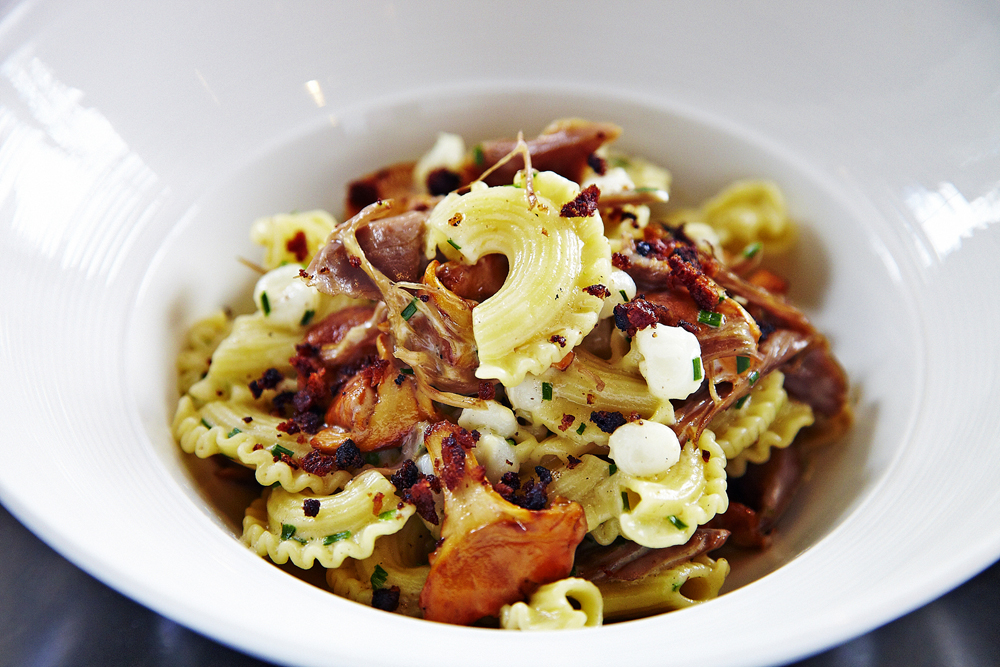
Brett Howson is a new restaurateur that recently opened Parlor Foods Co. in the spot that used to occupy Paese, another excellent Italian restaurant that closed earlier this year. Why did they close, we wonder… and why is a new restaurant jumping to move into its place? Howson and his team spent 16 months searching high and low for the location that would occupy what he believes is the perfect location to get regular traffic into his new eatery. “Being central was very important to us so we could get regular traffic including tourists. But in reality, the restaurant business is tough and if we’re making 10% profit, we’re doing well. When you own a restaurant you have to have more than one revenue stream, so catering and private events are huge parts of our business model.”
“But in reality, the restaurant business is tough and if we’re making 10% profit, we’re doing well…”
Many restaurants have taken this route including Matt Dean Pettit. In less than two years, Pettit seems to have built a lobster empire with four restaurants, his famous lobster roll on sale at Sobeys, , a new cookbook, a gig as an ambassador for Samuel Adams beer, and apparently a Food Network show on the way. His restaurants are fun, loud, tasty, but lately not always busy. We wonder how successful the restaurants would be without all his outside revenue.
ADVERTISEMENT |
In a world of critics, food bloggers, Yelp and more, how is a restaurant supposed to manage their reputation?
Many restaurants insist that they would never pay for advertising, however, they do count on food critics, bloggers, and media to help them build brand awareness – and they certainly use the Internet to call on them. When a new restaurant opens in Toronto, there seems to be the same strategy applied to every opening: social media teasing, Toronto Life and BlogTO getting the “first look,” and then media/blogger dinners that deliver the same reviews across the Internet. New restaurants that follow this recipe receive accolades through media and online coverage; they also raise a lot of eyebrows, and three months later, many remain desperate to turn a full cover on most nights. God help them if they get a zero star review from a certain Globe and Mail food critic…
ADVERTISEMENT |
What makes all the people claiming to be reviewers (and I include myself in this) experts in the overall restaurant experience? Isn’t every experience personal? Yelpers have caused great problems for restaurants not realizing that, at times, things do go wrong. We’ve seen food bloggers describe dishes incorrectly and take horrible pictures — and often chefs are disheartened by the food blogger culture. Yet in this dog-eat-dog city, they need them.
Toronto’s culinary culture seems to be pk-callout by a group of people almost like a high school “clique,” and some fall into their “good” books and others into their “bad” books. If you’re in their good books, are you sure to find success? Maybe for a little while – but eventually a cooler kid will come along. As Bieleki says, “In many ways, the “sheeple” of this city are driving the hot turnover. They focus on what’s cool and hot and think they really know about food – but do they?”
In a world where food has become a leading trend and most people eat out at least 2-3 times per week, more restaurants makes sense. But what about these restaurants that can only accommodate 20-30 people and have line-ups around the corner? I am guilty of enjoying my fair share of these kinds places and some are fantastic but it does kill me when I go to one and the food is mediocre and I realize the restaurant is only popular because of its short-lived reputation due to media coverage and a chef that is loud on social media.
ADVERTISEMENT |
Price Points: why are restaurants charging $8 for a dish and $22 for a glass of wine?
Another new trend we’ve seen, especially in the last year, is menus that have very low food prices and very high wines-by-the-glass prices. Is this a way to lure customers in? Most people will look at food menus over cocktail/wine menus when deciding where to go for dinner but, once there, they have no choice to be succumbed to the wine prices. I personally think it’s offensive when I am forced to pay $22 for a glass of Chardonnay that I know costs $32 a bottle at the LCBO. Do restaurateurs think we’re stupid? I am not by any means saying every restaurant does this, but yes, many new Toronto restaurants have been guilty of designing their menus this way. They’re still opened, so I guess it works…
“Today, I look at the amount of people I know, the experience I have, the knowledge I have, and the passion I have always had, and I feel ready to do it. But, I am not willing to do it in this city…”
So this brings me back to: what is the formula for success in this city that is oversaturated with culinary know-it-alls, fantastic restaurateurs and new restaurants opening every day? How long can this go on?
ADVERTISEMENT |
Writing this was difficult. At the age of 40, I have been in this industry for 24 years, and my passion for the business has pk-callout to a dream of opening a restaurant of my own. Over the last two decades, it was never the right time. Today, I look at the amount of people I know, the experience I have, the knowledge I have, and the passion I have always had, and I feel ready to do it. But, I am not willing to do it in this city – at this time – a city where restaurants are opening and closing daily, critics are ruthless, culinary leaders govern audience opinions, and restaurateurs are either filthy rich or very popular. I wonder when it will crash – if it does.
“I see a cleanse coming to the business – half of the restaurants are barely making money, and the other half are constantly changing things that go against what people really want: consistent food, service, and vibe.” finishes Bielecki.
I hope he’s right.
ADVERTISEMENT |
What are your thoughts on the overall scheme of things in regards to the Toronto Restaurant Scene? Let Vv Magazine know in the comments below or tweet us @ViewTheVibe.


